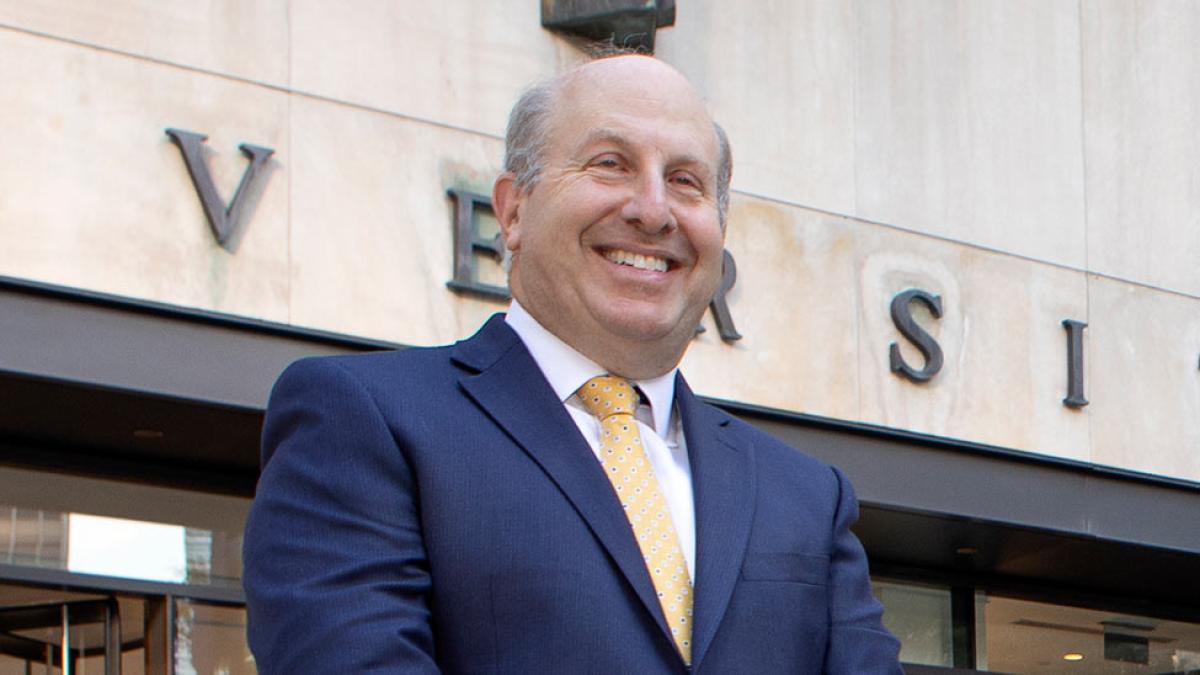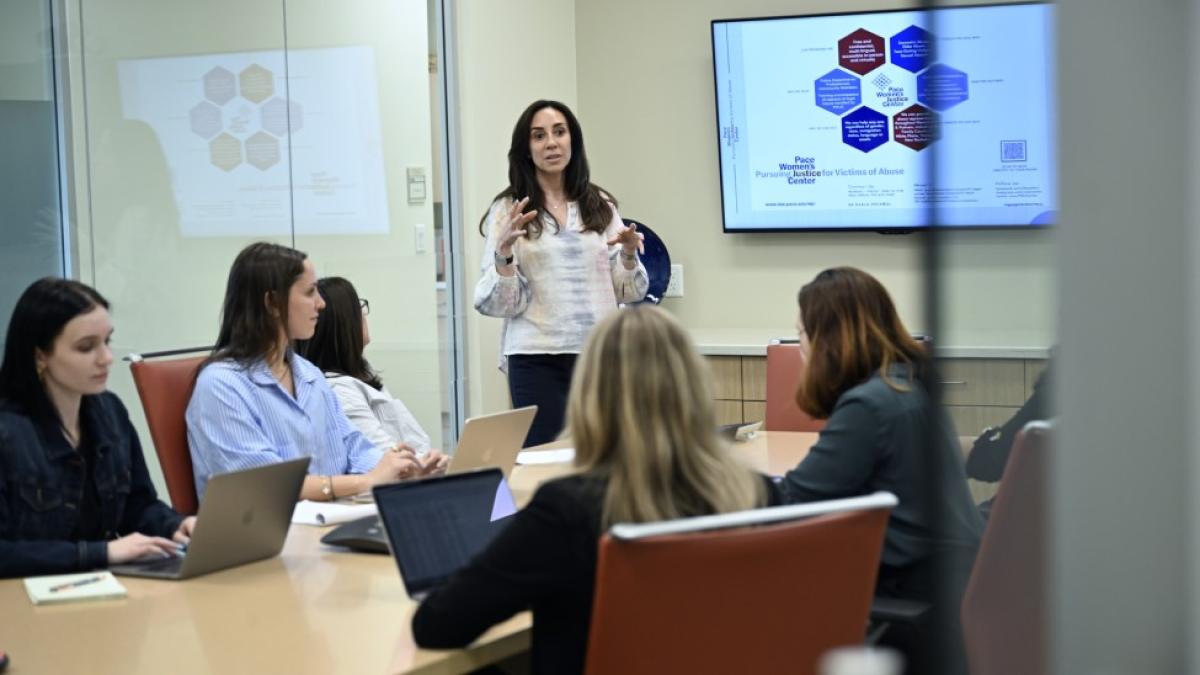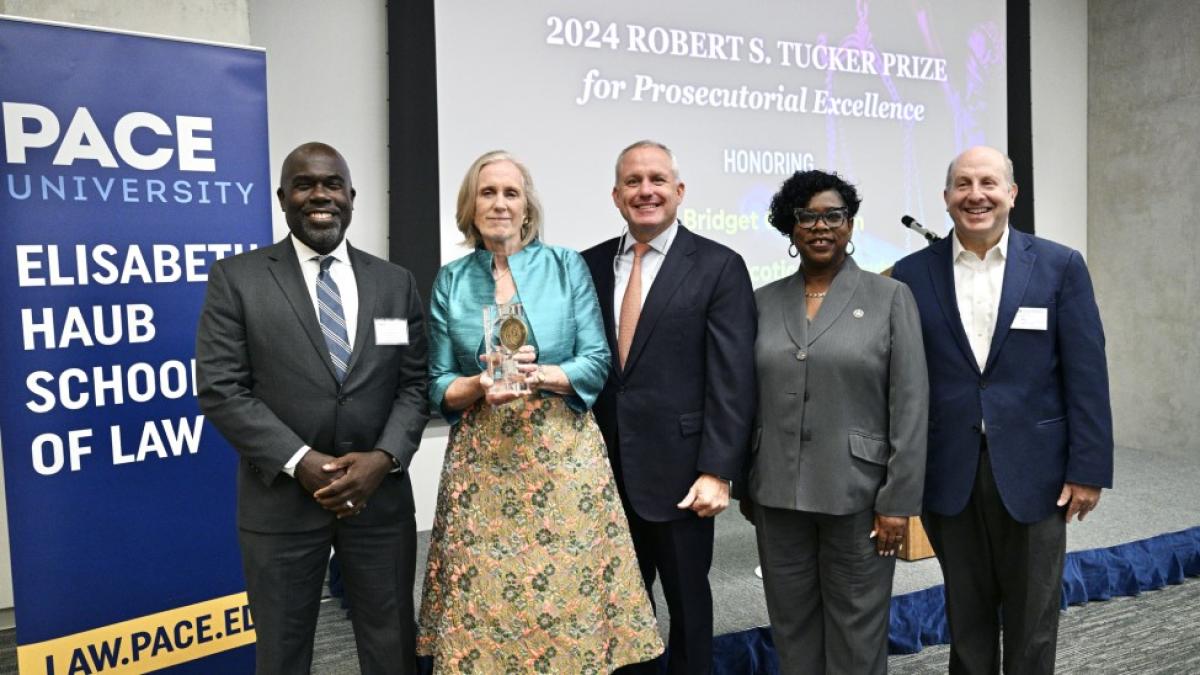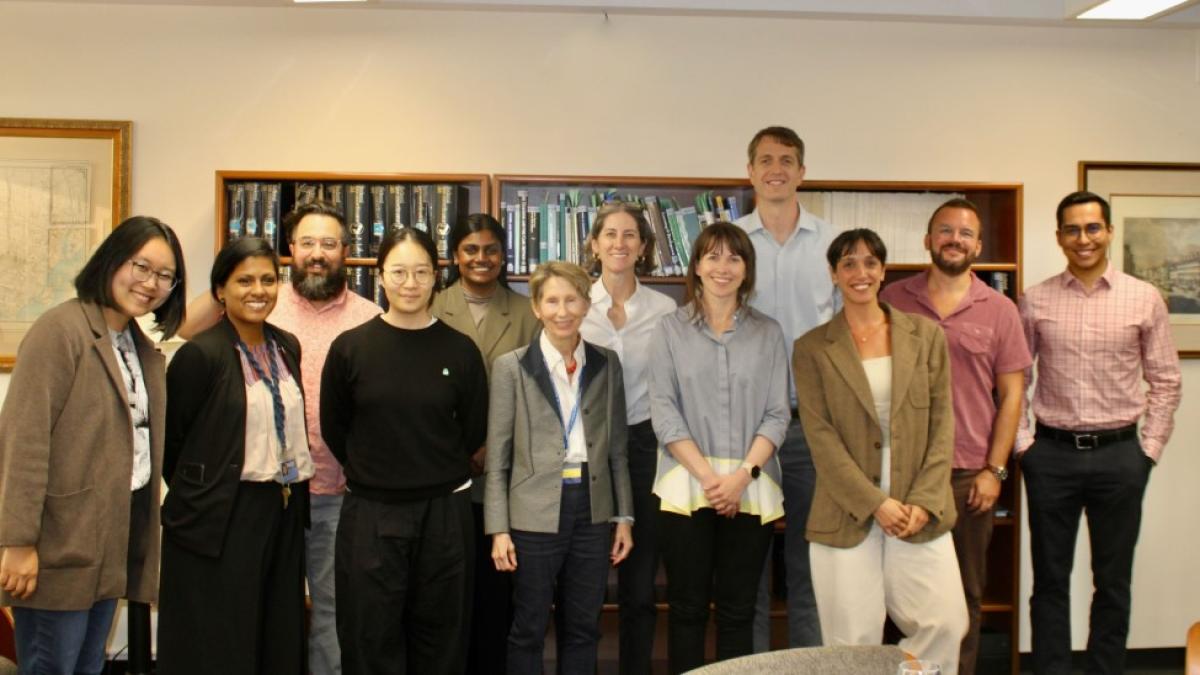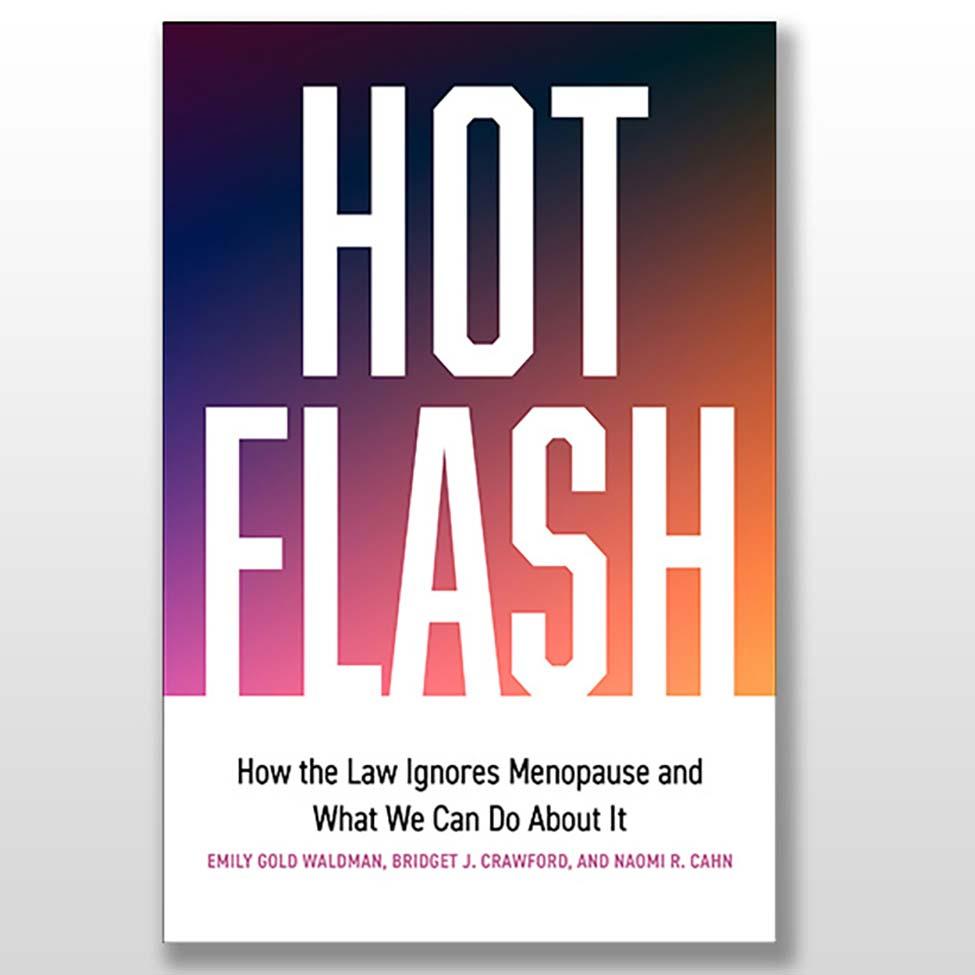
What Products Could Be Affected By The Port Strike?
Professor Andrew Coggins recently spoke to CBS News about the potential impacts of the ongoing dockworkers strike on product distribution at major East and Gulf Coast ports. Professor Coggins provided expert insight into how the strike could disrupt supply chains, delay shipments, and affect the flow of goods across the United States.

Elisabeth Haub School of Law at Pace University Professors Emily Gold Waldman and Bridget J. Crawford publish “Hot Flash: How the Law Ignores Menopause and What We Can Do About It.”
Elisabeth Haub School of Law at Pace University Professors Emily Gold Waldman and Bridget J. Crawford have published “Hot Flash: How the Law Ignores Menopause and What We Can Do About It. Their goal is to replace the legal and cultural silence surrounding menopause with a deeper understanding.

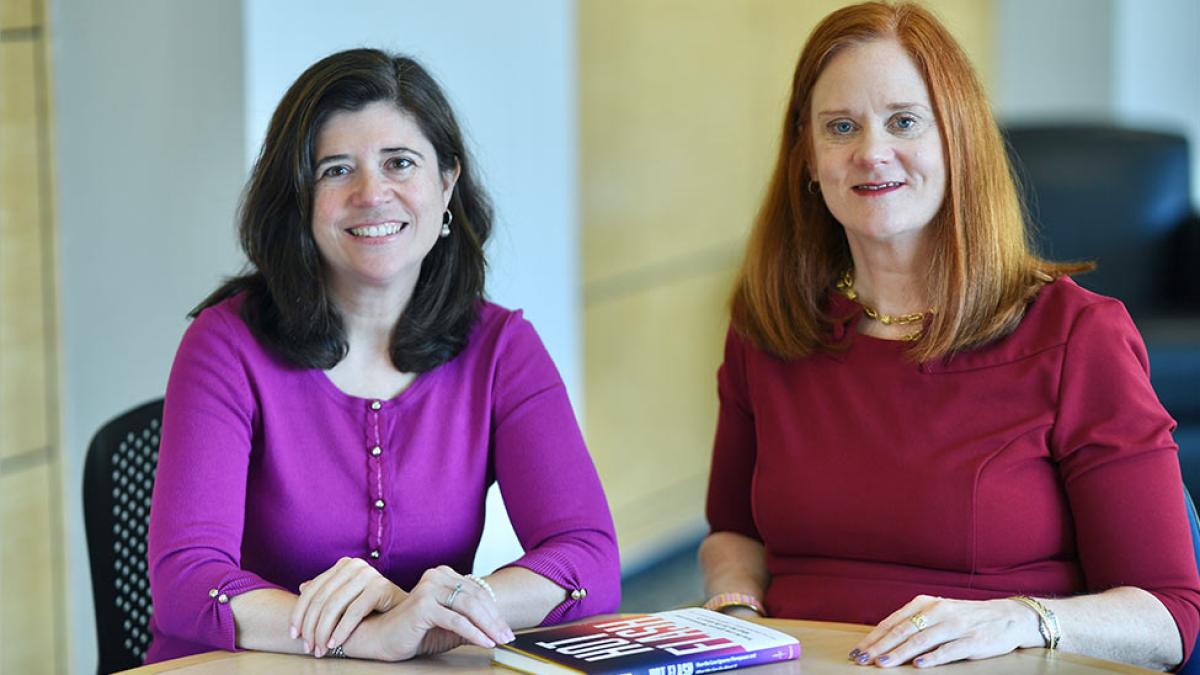

Elisabeth Haub School of Law at Pace University Professors Emily Gold Waldman and Bridget J. Crawford announce the release of their book “Hot Flash: How the Law Ignores Menopause and What We Can Do About It.,” co-authored with Naomi R. Cahn, the Justice Anthony M. Kennedy Distinguished Professor of Law and Nancy L. Buc '69 Research Professor in Democracy and Equity at the University of Virginia School of Law. The book, published by Stanford University Press, shows how silence and stigma around many aspects of reproductive health—from menstruation to menopause—have historically created the conditions in which bias and discrimination can flourish. The authors’ goal is to replace the legal and cultural silence surrounding menopause with a deeper understanding.
Hot Flash explores the culturally specific stereotypes that surround menopause in the United States, as well as how menopause is treated in law and medicine. The book also emphasizes the importance of contextualizing menopause alongside other reproductive stages, as opposed to viewing it as an entirely distinct event. Taking U.S. law regarding pregnancy and breastfeeding as an entry point, the authors suggest changes in existing legislation and workplace policies that would incorporate menopause as well. More broadly, they push us to imagine how law can support a more equitable future. As Professor Waldman explains, “Just as legal protections have evolved to address the challenges of pregnancy and breastfeeding in the workplace, the law can also support those experiencing menopause. By building on existing frameworks, we can ensure that employees affected by menopause have the support they need, ultimately fostering more inclusive work environments."
Throughout the book, a broader framework further enables the authors to explore menopause and its connections with gender, disability, age, and race. In so doing, the authors prompt readers to imagine how law can support a more equitable future and bodily autonomy for all. “Menopause is an inevitable experience for approximately half the population, yet it remains under-discussed in both law and culture,” said Professor Crawford. “Our hope is that this book will shine a light on the legal and social gaps surrounding menopause and also spark meaningful reforms that promote equity and understanding for all people.”
“Menopause is an inevitable experience for approximately half the population, yet it remains under-discussed in both law and culture."
Hot Flash has received critical acclaim from a variety of scholars, authors, doctors, publications, and more. Dr. Isaac Schiff of Harvard Medical School commented: “This is a groundbreaking exploration of a critical, yet overlooked aspect of reproductive health and the many ways that menopause is not just a personal, or even a medical, issue but also has legal implications. A must-read for anyone seeking a deeper understanding of menopause and advocating for inclusive, supportive practices and policies.” A Zoom book launch, hosted by the LawTech Center at the University of Virginia, will be held on October 28 at 1:00 p.m. The event is free and open to the public with pre-registration.
Together, Professor Crawford and Professor Waldman also co-authored the book Menstruation Matters: Challenging the Law’s Silence on Periods published in 2022 by NYU Press. That book explores the burgeoning menstrual advocacy movement and analyzes how law should evolve to take menstruation into account. It asks what the law currently says about menstruation and provides a roadmap for legal reform that can move society closer to a world where no one is held back or disadvantaged by menstruation. Hot Flash builds on these issues.
Professors Crawford and Waldman have also co-authored numerous articles focused on menstruation and the law, including Period Rhetoric and Partisan Politics, 57 Fam. L.Q. 265 (2024); Menstruation in a Post-Dobbs World, 97 N.Y.U. L. Rev. Online 6 (2023); The Unconstitutional Tampon Tax, 53 U. Rich. L. Rev. 439 (2019), Period Poverty in a Pandemic: Harnessing Law to Achieve Menstrual Equity, 98 Wash. U. L. Rev. 1569 (2021); Title IX and Menstruation, 43 Harv. J.L & Gender 225 (2020) (with Margaret E. Johnson); and The Ground on Which We All Stand: A Conversation About Menstrual Equity Law and Activism, 26 Mich. J. Gender & Law 341 (2020) (with Margaret E. Johnson, Marcy L. Karin, & Laura Strausfeld). Professors Crawford and Waldman have also published several law review articles with Professor Naomi Cahn focused on the law’s connections with menstruation and menopause, including Title IX and “Menstruation or Related Conditions,” 30 Mich. J. Gender & L. 101 (2023) (co-author with Marcy L. Karin, Elizabeth B. Cooper, Margaret E. Johnson); Managing and Monitoring the Menopausal Body, 2022 U. CHI. L. FORUM 41; Contextualizing Menopause in the Law, 45 Harv. J. L. & Gender 1 (2022); and Working Through Menopause, 99 Wash U. L. Rev. 1531 (2022). All three professors have also co-authored several book chapters on the subject.
Bridget J. Crawford is a graduate of Yale College (BA), the University of Pennsylvania School of Law (JD), and Griffith University (PhD) in Brisbane, Australia. Prior to joining the Haub Law faculty, Professor Crawford practiced law at Milbank Tweed Hadley & McCloy LLP in New York (now Milbank LLP). At Haub Law, she teaches Federal Income Taxation; Wills, Trusts and Estates; and Feminist Legal Theory. In 2021, she was appointed as a Distinguished Professor by Pace University, the highest honor the University can bestow upon a faculty member. Crawford’s published work includes several casebooks, books, and more than 100 scholarly articles and essays. Crawford is one of 26 law professors profiled in the book by Michael Hunter Schwartz et al., What the Best Law Teachers Do, published by Harvard University Press. She has been honored multiple times by graduating students at Haub Law as Outstanding Professor of the Year. She also is a prior recipient of Haub Law’s Faculty Award for Excellence in Teaching, the Goettel Prize for faculty scholarship, and the Ottinger Prize for Faculty Achievement.
Emily Gold Waldman is a graduate of Yale University (BA) and Harvard Law School (JD). She joined the Pace faculty in 2006, after clerking for the Honorable Robert A. Katzmann, Chief Judge of the United States Court of Appeals for the Second Circuit. At Haub Law, she teaches Constitutional Law, Law & Education, Employment Law Survey, and Civil Procedure. She has also served for many years as the Faculty Director of the law school's Federal Judicial Honors Program, which places students in externships with federal judges in the Second Circuit, Third Circuit, Southern District of New York, Eastern District of New York, and District of Connecticut. From 2003-05, she practiced in the litigation department of Debevoise & Plimpton LLP; prior to that, she clerked for the Honorable William G. Young, United States District Judge for the District of Massachusetts. She served as the chair of the AALS Section on Education Law during the 2011-12 school year, is a member of the Executive Committee of the AALS Section on Employment Discrimination, and is also a member of the Second Circuit's Judicial Council Committee on Civic Education & Public Engagement. An expert in the areas of education law, employment law, and constitutional law, Professor Waldman frequently presents on and serves as a panelist for programs focused on these topics and is often called upon by the news media for her expertise. Professor Waldman received the law school's Ottinger Award for Faculty Achievement in 2015, 2018, and 2023, the Professor of the Year Award from the Black Law Students Association in 2013, and the Goettel Prize for Faculty Scholarship in 2008. She currently serves as the Associate Dean for Faculty Development.
More from Pace
PWJC’s many programs offer free legal assistance, free legal clinics open to the public, and training for professionals. It also has a robust program to recruit, train, and supervise volunteers. A dedicated team of volunteers include those who have some legal training — such as lawyers, paralegals, and law students — and those who bring other skills to Center programs, such as community members, and high school and college students.
The Elisabeth Haub School of Law at Pace University honored Bridget G. Brennan, New York City’s Special Narcotics Prosecutor, with its 2024 Robert S. Tucker Prize for Prosecutorial Excellence at a ceremony attended by district attorneys, fellow prosecutors and other members of the legal community on Pace University’s New York City campus September 23, 2024.
On September 12, 2024, the Elisabeth Haub School of Law at Pace University Environmental Law Program held the second annual private environmental governance, sustainability, and ESG legal scholarship workshop. The half-day lightning workshop included an impressive gathering of environmentally focused scholars who spent the day workshopping new scholarship. This year’s workshop was developed by Haub Law Professor Josh Galperin, who also moderated the event.
What Can We Do To Build A More Well-Informed Citizenry?
President Krislov writes in Forbes about how higher education institutions can cultivate a well-informed citizenry.
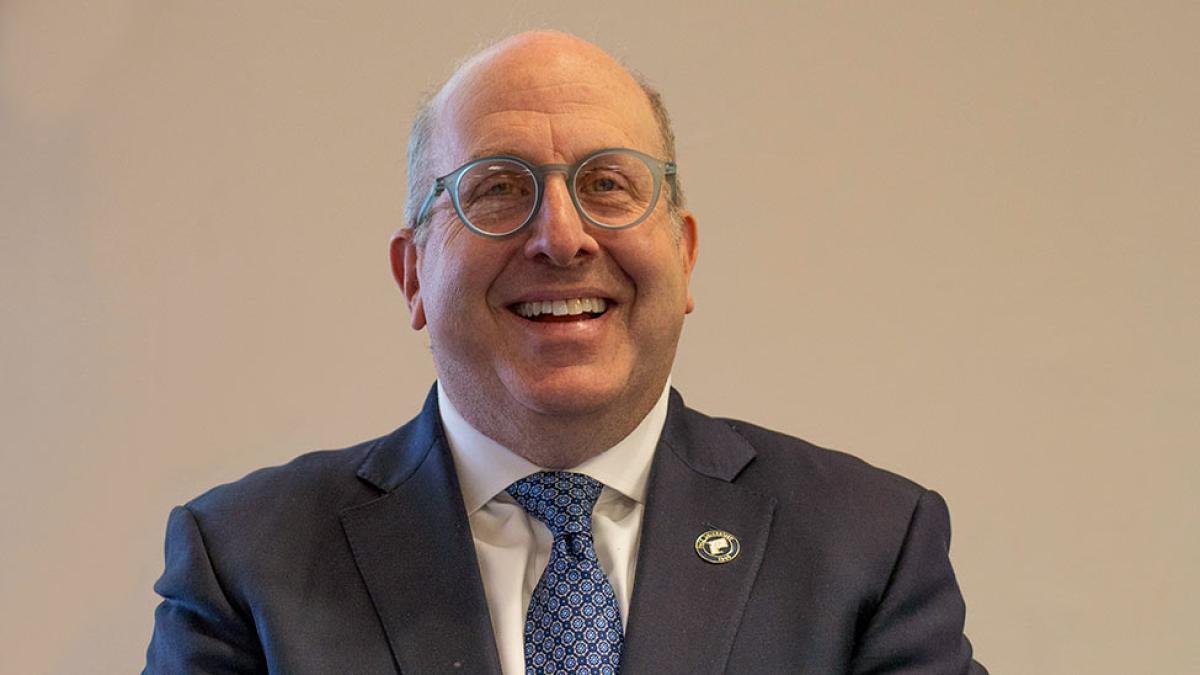
Local Businesses Preparing As Dockworkers Strike Nationwide
Lubin Professor Andrew Coggins provided expert commentary on the dockworkers strike.

Westchester County Executive George Latimer Celebrates Hispanic Heritage Month
Hispanic Heritage Month, celebrated from September 15 to October 15, honors Hispanic and Latino Americans’ history, culture and contributions. As part of Westchester County’s ongoing efforts to support the Hispanic/Latino community, a comprehensive survey is currently being conducted in collaboration with Pace University. The survey aims to gather essential data to help the County better address the evolving needs of its Hispanic/Latino residents in areas such as education, healthcare, employment, housing and social services.
Pace Law Partner With Yale University To Provide Joint Degree Options
The Association of American Law Schools reports the Elisabeth Haub School of Law and Yale University’s School of the Environment have enhanced their already existing partnership to offer students several new joint degree options.
Hispanic Heritage Month
As part of Hispanic Heritage Month, Westchester County officials are inviting all residents of Hispanic or Latino descent to fill out a community needs assessment form by October 7. The comprehensive survey is currently being conducted in collaboration with Professor Rebecca Tekula and her team. The survey aims to gather essential data to help the County better address the evolving needs of its Hispanic/Latino residents in areas such as education, healthcare, employment, housing and social services.
How Korea's High-Tech Landscape Leaves Foreigners, Marginalized Groups Behind
Professor Seong Jae Min writes an op-ed in The Korea Times discussing how Korea's high-tech landscape leaves foreigners and marginalized groups behind.

The Logger Who Learned The Value Of Living Trees
Professor Anne Toomey discusses with BBC News about Roberto Brito, who learned to use a chainsaw at age 11 and now leverages his deep knowledge of the Amazon rainforest to guide tourists.
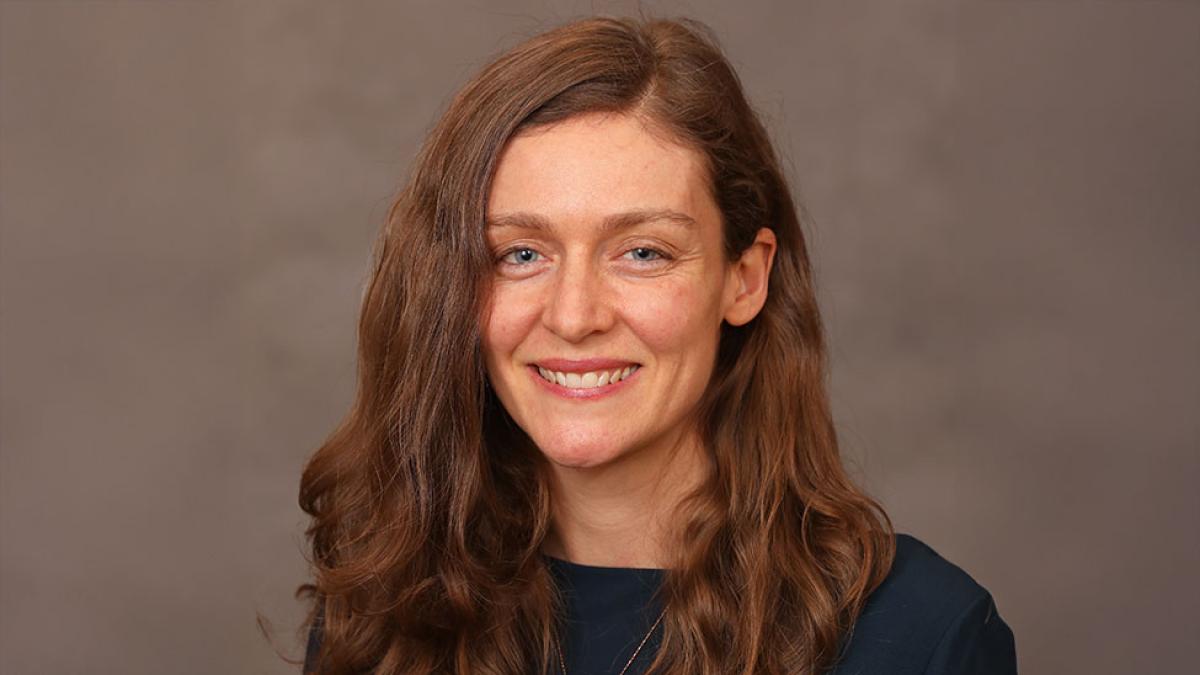
Preserving Higher Ed’s Historic Role
Pace President Marvin Krislov pens a letter to The Chronicle of Higher Education in response to a series of articles in the national press about the decline of Black student enrollment at American universities.
